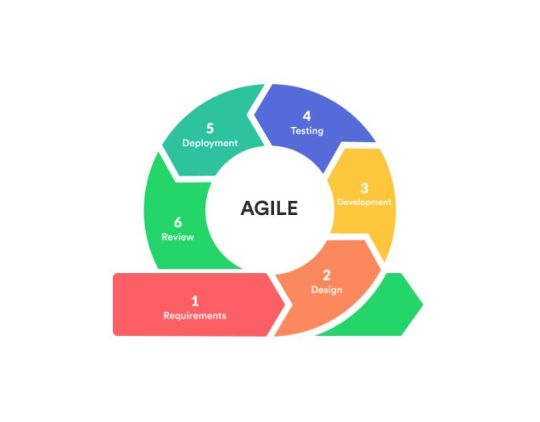Solverix Technologies Pvt. Ltd. has established itself as a reliable technology partner for businesses across India and Globally.
Don't wanna be here? Send us removal request.
Text
What is Agile Methodology in Software Development?

Why many organizations, especially software development companies in India and tech hubs like Mumbai, are increasingly adopting Agile to meet modern demands efficiently. read the below article to understand the agile methodology in software development. Visit: https://685e2b55bc3ec.site123.me/blog/what-is-agile-methodology-in-software-development
0 notes
Text
What is Agile Methodology in Software Development?

In today’s rapidly evolving tech landscape, software development has undergone a massive transformation. Traditional linear models are giving way to more dynamic approaches like Agile methodology in software development. Businesses now expect faster delivery, better flexibility, and more customer-centric solutions. That’s why many organizations, especially software development companies in India and tech hubs like Mumbai, are increasingly adopting Agile to meet modern demands efficiently.
What is Agile Methodology?
Agile methodology is an approach to software development and software engineering that emphasizes flexibility, collaboration, and iterative progress. Instead of following a rigid, step-by-step process, Agile encourages breaking the project into smaller tasks (called iterations or sprints) that are developed, tested, and improved continuously.
The goal is to deliver working software quickly, adapt to feedback fast, and involve stakeholders throughout the process. This makes Agile methodology in software engineering particularly effective in projects where requirements evolve over time or when the end goal isn’t entirely clear from the start.
Core Principles of Agile
Agile is guided by the Agile Manifesto, which outlines four core principles that shape its process:
Customer collaboration over contract negotiation
Working software over comprehensive documentation
Responding to change over following a fixed plan
Individuals and interactions over processes and tools
These principles enable software development firms to stay responsive, maintain transparency, and deliver value consistently—even in fast-paced or unpredictable environments.
Agile in the Software Development Life Cycle (SDLC)
So, where does Agile fit into the software development life cycle? The answer: everywhere.
Here’s how Agile methodology in software development life cycle works:
Planning – Define goals, timelines, and user stories.
Designing – Create initial prototypes or wireframes.
Developing – Code in small, functional modules.
Testing – Continuously test with each sprint.
Deploying – Launch the updates incrementally.
Reviewing – Analyze results, gather feedback, and plan next steps.
Each cycle is repeated with improvements, ensuring that the software evolves according to real-time user needs.
Popular Agile Frameworks
There’s no one-size-fits-all when it comes to Agile. That’s why software development companies choose from various frameworks based on project needs. The most common ones include:
Scrum – Focuses on sprint-based development and team roles like Product Owner and Scrum Master.
Kanban – Uses visual boards to manage workflow and limit work-in-progress.
Lean – Emphasizes minimizing waste and maximizing value delivery.
Each framework offers unique advantages depending on the project size, team structure, and business goals.
Benefits of Agile Methodology
Agile offers numerous advantages for both development teams and clients:
Faster Time to Market – With quick iterations, product updates are released faster.
Improved Product Quality – Frequent testing leads to early bug detection.
Enhanced Team Collaboration – Agile encourages daily stand-ups and constant communication.
Better Change Management – Teams can easily pivot based on client or market feedback.
Software development companies in Mumbai, for example, are using Agile to stay competitive, delivering high-quality software while adapting to client requirements in real time.
Who Uses Agile?
Today, Agile isn’t limited to just startups. It’s used across a wide range of industries and by various types of companies for software developers, including:
Tech startups building MVPs
Enterprise-level IT firms managing large systems
Consulting agencies handling client-based projects
Industries like fintech, e-commerce, healthcare, and edtech benefit heavily from Agile’s flexible and fast-paced nature. Any software development firm aiming to stay ahead in the digital era is either using or transitioning to Agile.
Final Thoughts
Agile has become the backbone of modern software development. Its flexible, iterative, and customer-first approach ensures businesses get high-performing solutions tailored to their evolving needs. If you're looking to accelerate your project success, partnering with a reliable software development company in India that leverages Agile practices could be the game-changer your business needs.
1 note
·
View note